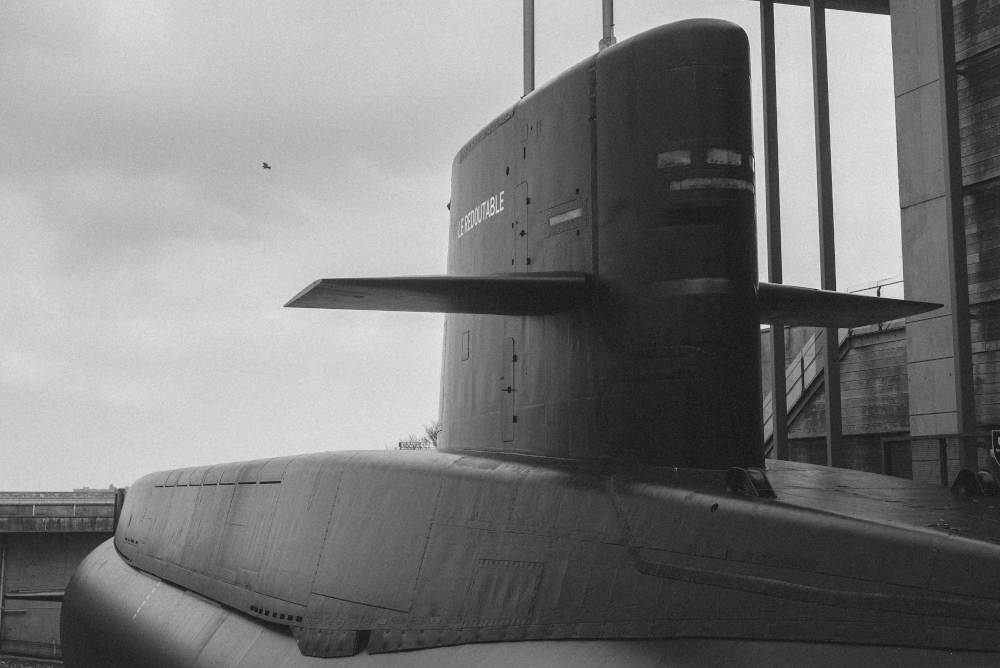
In an assertive demonstration of Britain's resolve to protect its maritime interests, a Royal Navy attack submarine surfaced near a Russian spy ship off the UK coast. This unprecedented move was revealed by Defence Secretary John Healey, who underscored the incident as a clear warning against espionage activities aimed at Britain's vital undersea infrastructure.
The Incident
The encounter took place when the Russian vessel Yantar, known for its intelligence-gathering capabilities, was detected loitering over UK critical undersea infrastructure in November 2024. In response to this perceived threat, Healey authorized an Astute-class nuclear-powered submarine to surface close to Yantar. This action was described as "strictly as a deterrent measure" to signal to the Russian crew that their every move had been covertly monitored.
Despite this clear warning, Yantar returned to UK waters in January 2025, prompting further action. This time, alongside the submarine, Healey deployed Royal Navy warships HMS Somerset and HMS Tyne, as well as RAF maritime patrol aircraft to shadow the spy ship's movements. This response included a change in the Royal Navy's rules of engagement to allow British vessels to get closer to Yantar for better tracking, emphasizing the seriousness with which the UK viewed this repeated incursion.
The Broader Context
The incident with Yantar is not isolated but rather part of an ongoing narrative of heightened tensions and espionage between Western nations and Russia. The UK, along with its NATO allies, has been increasingly vigilant about Russian naval activities, particularly those aimed at mapping and potentially threatening undersea cables, pipelines, and other infrastructure critical to national security and economic stability.
British and American intelligence agencies have described these activities as part of a "reckless campaign of sabotage" by Russian operatives across Europe. The concern stems from the vulnerability of undersea cables, which are essential for global communications, finance, and energy supply. An attack on these could have significant repercussions not just for the UK but for global markets and security.
Political and Military Response
Defence Secretary John Healey did not mince words in his message to Russian President Vladimir Putin, stating, "We see you. We know what you are doing. And we will not shy away from robust action to protect this country." This statement was not only directed at the immediate incident but serves as a broader warning against any attempts to undermine British or NATO infrastructure.
In addition to the immediate military response, the UK has been taking steps to bolster its maritime security. This includes deploying advanced AI-assisted systems to monitor key areas of interest, contributing to NATO operations in the Baltic Sea to protect undersea cabling, and enhancing the capabilities of the Royal Fleet Auxiliary with ships like RFA Proteus, which can deploy submersible drones for infrastructure assessment.
Public and International Reaction
The revelation of this incident in Parliament was met with a mixture of support and calls for even stronger measures. Some voices within the UK political spectrum, including former defence secretaries, advocated for a more "upfront approach," suggesting the detention of suspicious ships for further investigation.
Internationally, this event has underscored the precarious nature of undersea infrastructure and the need for robust defence mechanisms. NATO allies have expressed solidarity with the UK's actions, with the alliance moving to strengthen its maritime surveillance, particularly in areas like the Baltic Sea where similar Russian activities have been noted.
Conclusion
The surfacing of a Royal Navy submarine near a Russian spy ship in UK waters is a dramatic illustration of the ongoing cat-and-mouse game in international waters. It highlights the UK's commitment to defending its sovereignty and infrastructure from espionage and potential sabotage. This incident sends a strong message not only to Russia but to any nation contemplating similar actions against British or allied interests. As tensions persist, the need for vigilance, international cooperation, and technological advancement in maritime security becomes ever more apparent.
War dieser Artikel hilfreich für Sie? Bitte teilen Sie uns in den Kommentaren unten mit, was Ihnen gefallen oder nicht gefallen hat.
About the Author: Alex Assoune
Wogegen Wir Kämpfen
Weltweit-Konzerne produzieren in den ärmsten Ländern im Übermaß billige Produkte.
Fabriken mit Sweatshop-ähnlichen Bedingungen, die die Arbeiter unterbezahlt.
Medienkonglomerate, die unethische, nicht nachhaltige Produkte bewerben.
Schlechte Akteure fördern durch unbewusstes Verhalten den übermäßigen Konsum.
- - - -
Zum Glück haben wir unsere Unterstützer, darunter auch Sie.
Panaprium wird von Lesern wie Ihnen finanziert, die sich unserer Mission anschließen möchten, die Welt völlig umweltfreundlich zu gestalten.
Wenn Sie können, unterstützen Sie uns bitte monatlich. Die Einrichtung dauert weniger als eine Minute und Sie werden jeden Monat einen großen Beitrag leisten. Danke schön.































0 Kommentare